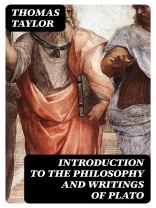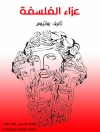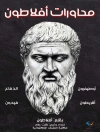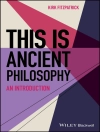In ‘Introduction to the Philosophy and Writings of Plato, ‘ Thomas Taylor expertly navigates the complex terrain of Platonic thought, elucidating the foundational concepts and dialogues that have shaped Western philosophy. Taylor employs a didactic literary style, combining rigorous analysis with accessible prose that invites both scholars and lay readers alike into the intricacies of Plato’s ideas. His contextualization of Plato within the broader framework of Ancient Greek philosophy reveals both the interconnectedness of philosophical thought and the relevance of Platonic ideals in contemporary discourse. Through meticulous examination of dialogues such as ‘The Republic’ and ‘Phaedrus, ‘ Taylor offers insight into the allegorical subtleties and metaphysical underpinnings of Plato’s work. Thomas Taylor, renowned as one of the foremost Neoplatonist philosophers and translators in the early 19th century, was greatly influenced by both classical thought and mystical philosophy. His extensive background in Ancient Greek literature and dedication to reviving Platonic texts positioned him uniquely to provide readers with a richly informed perspective on Plato’s philosophies. This work reflects Taylor’s passion for uncovering the spiritual dimensions of Plato’s dialogues, which resonates with his own philosophical inquiries. I highly recommend ‘Introduction to the Philosophy and Writings of Plato’ to anyone interested in the enduring legacy of Platonic thought. Whether you are a seasoned philosopher seeking a deeper understanding or a newcomer curious about the origins of Western philosophy, Taylor’s comprehensive guide will illuminate the nuances of Plato’s writings and inspire further exploration into the philosophical dialogue that continues to shape our world.
Circa l’autore
Thomas Taylor (1758–1835) was an English translator and a remarkable scholar renowned for his work related to classical Greek philosophy and literature. Recognized for his translations of Aristotle and Plato, Taylor’s contributions were integral in reintroducing the profound wisdom of Ancient Greek thinkers to the English-speaking academic world during the 18th and early 19th centuries. His literary style is characterized by a deep respect for the original texts, a meticulous attention to detail, and a steadfast commitment to preserving the philosophical integrity of the works he translated. His seminal work, ‘Introduction to the Philosophy and Writings of Plato’ encapsulates his approach, making Platonic philosophy accessible and comprehensible to a broader audience. Beyond translating, Taylor also engaged in writing commentaries, thereby providing valuable insights into esoteric and Neoplatonic thought. Although he was not widely recognized in his lifetime and often criticized for his proclivity for the metaphysical and mystical aspects of Platonism, his influence persisted, and he came to be appreciated as a key figure in the revival of interest in Platonic philosophy in the English-speaking world. Taylor’s dedication to classical philosophy remains an enduring testament to his scholarly devotion and has cemented his place as the ‘English Platonist’. (Chisholm, Hugh, ed. (1911). ‘Taylor, Thomas’. Encyclopædia Britannica (11th ed.). Cambridge University Press.)












